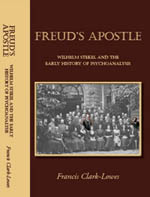An Englishman’s Castle was my Home … and my Prison (November-December 1999)
In the mid-eighteenth century Matthew Featherstonehaugh moved his family seat from the twelfth century fortified farmhouse of Featherstone, near Haltwhistle, Northumberland, to Uppark, West Sussex, where his successors still live. (This is the grand country house which burnt down a few years ago and was exactly reconstructed by the National Trust who have owned the building since 1954.) Curiously the Featherstonehaugh trajectory bears a certain resemblance to my own, though it has to be admitted that 9 Trafalger Terrace is marginally less opulent than Uppark!
During the nineteenth century Featherstone was transformed by the Hope Wallace family into a castelated stately home. It was as steward to the Hope Wallaces that my paternal great grandfather made his meteoric rise from rags to, if not riches, at least good fortune. But it was through my Yorkshire-born maternal grandfather, who ran a prep school in Rugby during the twenties and thirties, that my own association with Featherstone began. Following bomb damage to the school in 1940 he moved lock, stock and barrel to the castle, which he rented for a number of years before finally buying it in 1951.
In 1950 my mother went on a travelling scholarship to Italy to study art and I was therefore sent to stay at Featherstone for three months. My first conscious memories of the place are, despite my separation from my mother, entirely happy. At night the unfamiliar but comforting sound of rushing water lulled me to sleep and in the early morning I watched boys running across the field to the South Tyne for a dip in a natural pool.
Two years later my grandfather, who was suffering from ill-health, decided to retire and my parents thought that I should have the benefit of one term under his headmastership. So shortly after my eighth birthday, in January 1953, my father took me back to Featherstone to start my prep-school career. I remember that we had time to waste before Mr Potts’s Chevrolet taxi was free to take us up to the castle and so we walked along Haltwhistle’s drab Main Street, my father no doubt made pensive by scenes from a childhood which was twice touched by tragedy. Unexpectedly and all to soon we reached the end of the town and the time of our separation drew nearer.
By the next snapshop memory my father has gone and I see myself sitting on a lawn in front of the castle listening to a boy describing his journey from Khartoum in a Comet, ‘the first jet airliner’. He is showing me a model of it which he was given on the plane. In the dormitary, which I share with two others, we sing Loch Lomond with its resonant theme of a dying soldier who will never see his truelove again. Now I am standing beside my grandfather’s grand piano, the same one which fills a large part of my ground floor in Trafalgar Terrace, as he plays the rousing Ethiopia Salutes the Colours by Charles Wood. I see myself playing chucks (jacks) and marbles and standing irresolutely on the cold rugby field. And then there are those compelling non-visual memories, the smells of menthol toothpaste and fresh linen, of carbolic soap and bacon, and of pine disinfectant mixed with various malodours.
Soon my grandparents have gone as well, and a kind clergyman assumes the headmastership. The time has come for me to encounter injustice and to develop a lifetime habit of thinking: ‘It isn’t fair!’ I am given a ‘black mark’ for showing my neighbour the place in the Bible, I am set upon by a gang of older boys and beaten up, and I’m picked on because I am the ex-headmaster’s grandson. Every detail of the end of term is etched on my mind, for it was like being released from hell and delivered into heaven.
One of my dormitary mates regularly attempted to run away and was as often found by the police wandering across the moors and brought back. All I needed to do, I reflected, to end my misery was to get to my Uncle John and Auntie Audrey who lived only two miles down the valley at Bellister Castle. But before I could pluck up the courage to put this plan into action a remarkable change occurred in my fortunes. The clergyman (whom I actually liked, despite my troubles) resigned and my father became headmaster. Suddenly there was no need to run away for school had become home. My rapture was, however, short-lived.

